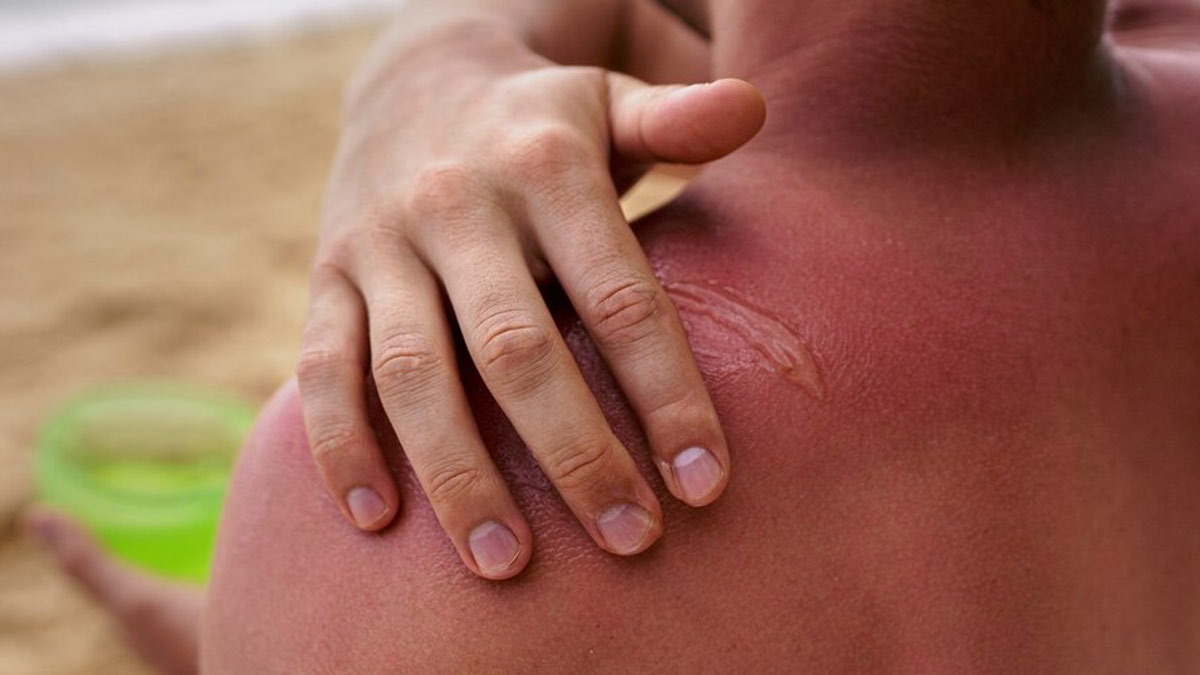
Do you experience skin irritation by repeated rubbing of skin against itself, clothing, or other materials? This results in a skin issue known as chafing and appears as red, sore, and sometimes raw skin. It can be caused by a long run, intense workouts, or simply wearing new clothes. In this article, we list effective home remedies to manage skin chafing.
Table of Content:-
Home Remedies To Manage Skin Chafing
1. Keep the Skin Dry
Keeping your skin dry is one of the best ways to prevent chafing. Moisture can increase friction and worsen irritation. Here are a few methods to manage skin dryness:

- Use Talcum Powder or Cornstarch: Apply talcum powder or cornstarch to the affected areas to absorb sweat and reduce friction. These powders prevent chafing by keeping the skin dry.
- Wear Moisture-Wicking Clothing: You should opt for breathable, moisture-wicking fabrics that pull sweat away from the skin. Look for athletic wear made from materials like polyester or nylon, designed to keep you dry.
2. Choose the Right Clothing
The type of clothing you wear can significantly impact your chances of experiencing chafing. To manage and prevent chafing, consider these clothing tips:
- Wear Well-Fitting Clothes: Avoid clothes that are too tight or too loose. Well-fitted clothing reduces friction and prevents skin irritation.
- Opt for Seamless or Smooth Seams: Choose clothing with minimal or smooth seams to reduce friction. Seamless underwear and sportswear are excellent choices for preventing chafing.
Also Read: Understanding Skin pH: Expert Explains Importance Of Skin pH And How To Tell If Yours Is Healthy
3. Treat Chafed Skin Promptly
If you do experience chafing, treating the affected skin promptly can help it heal faster and prevent further irritation:

- Clean the Area Gently: Wash the chafed area with mild soap and water. Avoid scrubbing, as this can worsen irritation.
- Apply a Soothing Ointment: Use a soothing ointment like aloe vera gel or an over-the-counter hydrocortisone cream to relieve discomfort and promote healing.
- Avoid Irritants: While the skin is healing, avoid using products with fragrances or harsh chemicals that could further irritate the area.
4. Stay Hydrated
Did you know hydration plays a crucial role in maintaining healthy skin? Drinking enough water helps keep your skin hydrated and resilient. Aim to drink at least eight glasses of water a day to support skin health and overall well-being.
5. Use Natural Remedies

Several natural remedies can help manage and soothe chafed skin:
- Aloe Vera: Aloe vera has anti-inflammatory properties that help soothe irritated skin. According to the Iranian Journal of Medical Sciences, this medicinal plant is effective in enhancing skin health and aiding in wound healing
- Coconut Oil: According to 2018 research, coconut oil may help to reduce inflammation, facilitate wound healing, and combat bacteria on the skin. Coconut oil can be gently rubbed on the affected area to reduce irritation and promote healing.
- Oatmeal Baths: You can even use an oatmeal bath to soothe irritated skin. Add colloidal oatmeal to a lukewarm bath and soak for 15-20 minutes to relieve discomfort.
Also Read: Skincare According To Age: Expert Answers What To Use At What Age?
6. Adjust Your Exercise Routine
If chafing is a result of physical activity, consider making adjustments to your exercise routine:
- Wear Proper Gear: Invest in high-quality, moisture-wicking workout gear that fits well and minimises friction.
- Take Breaks: Allow your skin to rest and recover between intense workouts. Overuse of chafed areas can prolong irritation.
7. Keep Your Skin Healthy
Maintaining overall skin health can help prevent chafing:
- Moisturise Regularly: Keeping your skin hydrated can also help prevent chafing. Use a gentle, fragrance-free moisturiser to maintain skin hydration and reduce friction.
- Exfoliate Regularly: Gentle exfoliation removes dead skin cells that can contribute to chafing. Use a mild exfoliating scrub or a soft washcloth to remove dead skin cells.
- Maintain a Healthy Diet: A diet rich in vitamins and minerals supports skin health. Incorporate fruits, vegetables, and healthy fats into your meals for optimal skin condition.
[Disclaimer: This article contains information for informational purposes only, hence, we advise you to consult your own professional if you are dealing with any health issues to avoid complications.]
Also watch this video
How we keep this article up to date:
We work with experts and keep a close eye on the latest in health and wellness. Whenever there is a new research or helpful information, we update our articles with accurate and useful advice.
Current Version